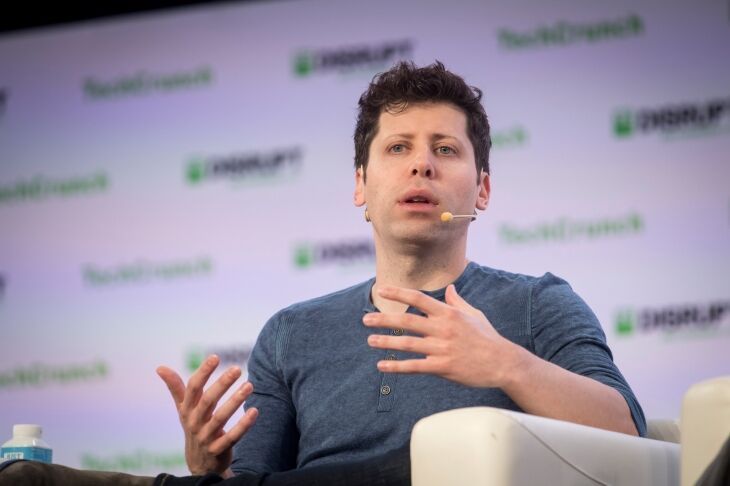ChatGPT is one of those rare moments in technology where you see a glimmer of how everything is going to be different going forward.” ~Aaron Levie
Remember that?
Oh yeah! Financial trading has undergone huuuuuge transformation with the onset of modern technologies, particularly Artificial Intelligence (AI) and innovative solutions like GPT. Oh yeah, that thing just doesnt write, but can also code, design, present.. everything! These advancements have redefined how traders analyze markets, execute strategies, and educate themselves about trading. AI doesn’t predict the future; it prepares you for it. The integration of AI in trading, GPT Trading and similar technologies that have now hit the markets, is something we are looking to talk about over here.
The Role of AI in Modern Trading
Trading with GPT is like having an assistant who never sleeps. Artificial Intelligence has become a cornerstone in the financial industry, and has now begun offering tools that enhance decision-making, risk assessment, and market analysis. It is AI systems that can process vast amounts of data at speeds you never saw before, identifying patterns and trends that are simply impossible to human traders. This capability has led to the development of algorithmic trading, where AI-driven models execute trades based on predefined criteria without human intervention. Incredible, isnt it? Data-driven decisions reduce emotions in trading—GPT can help.
Financial institutions that you and I know and some even, we dont know of, have long utilized AI to detect fraudulent activities by monitoring behavioral patterns for anomalies. AI can analyze markets, but human judgment refines strategies. So yeah, they have always been there. AI aids in operations such as bookkeeping, stock investments, and surely even property management. The intertwining of AI in these areas streamlines processes, enhances accuracy and efficiency, cant replace traders, but traders using AI have replaced those who don’t.

ChatGPT, that was developed by OpenAI was started off as a language model designed to generate human-like text based on the input it receives. Yeah, thats the Wikipedia definition of it. While its primary function is to assist with natural language processing tasks for which it was initially conceptualized, its applications have now extended into various domains. Can you name some? Let us do that for you: Finance and trading to start off with! Traders and investors are exploring ways to leverage GPT's capabilities for market analysis, strategy development, and educational purposes. That is some spectacular stuff, right there! Algorithmic trading is the future, and GPT is the guide.
But then, the big question is - Can GPT Be Used for Trading?
Markets are chaotic, but AI finds the patterns. While GPT is not a trading platform, it can serve as a valuable tool in the trading process. We mean, just imagine.. Traders can use GPT to generate code snippets for trading algorithms, and analyze market sentiment by processing news articles and social media posts and videos from the world over, and simulate trading scenarios. Trading with GPT is like having a data scientist on demand.
Need an example? Lets give you one. By inputting specific trading strategies or market conditions, ChatGPT can provide insights or suggest modifications to existing strategies. Machine learning models don’t panic, they analyze.
Can it Teach you how to trade?
AI doesn’t sleep, but it can help you trade smarter. GPT can be an educational resource for you and me who are interested in learning about trading. Using AI for trading is like playing chess with real-time insights. Users can engage with GPT to understand fundamental trading concepts. They can then explore different trading strategies which in turn can help them gain insights into market dynamics.
Whoa, this is totally epic, right?
By posing questions about specific topics, such as technical analysis or risk management, you can receive detailed explanations and examples. Technology doesn’t make a great trader—how you use it does. This interactive approach involving tech and human mind can complement traditional learning methods, and it can also give you a personalized learning experience.
The integration of AI in trading is well-established, with so many AI-driven platforms and tools are now available to traders. Data is the new oil—GPT refines it for traders. These systems utilize machine learning algorithms to analyze historical data resulting in predicting market movements, and hence execute trades autonomously. They dont even need your intervention if you program them right. Machine learning detects trends; traders decide when to act.
High-frequency trading firms, for example, employ AI to execute millions of trades daily! And they end up capitalizing on minute price discrepancies. That is just too much for us individuals . Additionally, AI for sure helps in portfolio management by checking asset performance and optimizing asset allocation across asset classes. AI filters market noise, but conviction fuels great trades. So you are still relevant but AI superpowers you.
GPT Trading Bots and more on that..
While GPT itself is not a trading bot, developers have experimented with integrating its language processing capabilities into trading systems. And why not? AI can’t replace experience, but it can speed up learning. By combining GPT with trading platforms, users can create bots that interpret natural language inputs to execute predefined trading strategies.
And we can barely contain ourself on that one!
For example, a trader could instruct the platform enabled by GPT to "buy 100 shares of Company X if the price drops below $50," and the system would execute the order, Poof! Done! When conditions are met, you have your order through the door. But lets not get carried away. It is crucial to approach such integrations cautiously. We have to ensure that the bot operates within the defined parameters and it must mitigate potential risks. Automation helps efficiency, but human oversight is still king.
GPT can assist traders in the stock market by providing analyses based on historical data, yes - for sure that can happen. It also helps by processing textual information related to stocks. GPT can summarize earnings calls, but can it spot deception? Nope! It can summarize financial reports, interpret news sentiment, and even generate hypotheses about stock performance. But you, dear human, still need your human judgment to be involved. GPT's outputs are based on patterns in the data it has been trained on. So sometimes it can literally be - Garbage in, Garbage out! And please let it not constitute financial advice. You can use GPT as a supplementary tool, and corroborate its insights with other sources. But your gut instinct is good, and AI can make it better.

Can GPT Predict the Stock Market?
There is no yes or no answer to that! GPT-powered trading bots are tools, it is upto us to use them wisely. Predicting the stock market involves anticipating future price movements based on various factors - everything from economic indicators, company performance to market sentiment, everything plays a role.
While GPT can analyze historical data and identify patterns, it does not possess the capability to predict future market movements with certainty. Dude.. like we know that.
The stock market is influenced by so many unpredictable factors which can make precise predictions challenging. Big data is useless without AI to make sense of it. GPT can provide insights based on existing data, But do understand - Trading success lies in combining AI insights with human discipline. It should not be relied upon for definitive market predictions.
Traders can leverage GPT to analyze stocks by inputting specific queries which can talk about a company's financial health, market trends, or recent news. And give an entire summary of it. For example, by providing GPT with a company's financial statements, a trader can request an analysis of key metrics that he may eed to make or change his decisions - Revenue growth, profit margins, debt levels and the like.
If that isn't good enough to get your adrenaline pumping, we don't know what is?
Additionally, by inputting recent news articles, GPT can assess the sentiment and potential impact on the company's stock price of the geopolitical unknowns. Traders can gain a comprehensive understanding of a stock's potential performance by using these methods.
The foreign exchange (Forex) market too is no stranger to this. As it operates 24 hours a day, with currency values influenced by geopolitical events, economic data releases, and market sentiment, GPT can assist Forex traders by analyzing that entire plethora of data. Including all that textual data related to these factors. Quoting an example here - It does so by processing news articles about economic indicators or political developments. And GPT can provide insights into potential currency movements. Marvelous right?
But wait.. Like stock trading, Forex trading involves high volatility, and while GPT can offer valuable information, traders should exercise caution. Technical indicators + AI +HI = smarter trade decisions.
Technologies like GPT offers numerous benefits - And yet, traders should be aware of their limitations. The future of trading isn’t human vs. AI—it’s collaboration. AI models are trained on historical data, but humans can see whats happening around them, real time. Over-reliance on AI without understanding the underlying trading principles can lead to misguided decisions for the traders. But if you do it well and balanced, AI trading is your world next.
Disclaimer
Trading carries inherent financial risks, including the potential for significant losses. Historical data indicates that a substantial percentage of traders experience financial downturns. Names such as "AI Trading" mentioned on our site are fictitious and used solely for marketing purposes. Testimonials and featured media may include actors and are intended for promotional use only. Before engaging with any trading platform, we strongly advise reviewing its terms, conditions, and disclaimers. Additionally, ensure compliance with tax obligations related to capital gains in your jurisdiction, such as CFTC regulations in the US. In regions like the UK, financial regulations, including FCA Policy Statement PS20/10, impose restrictions on certain marketing practices for CFDs. Adhering to local financial laws is essential. By submitting your details, you agree to their use by third parties as outlined in our Privacy Policy and Terms and Conditions. Whether you trade independently, use automated trading software, or consult professional brokers, make informed decisions that align with your financial strategy.
Vygr News & Vygr Media Private Limited and its authors are not responsible for your actions and decisions on your trading activities.
© Copyright 2024. All Rights Reserved Powered by Vygr Media.
























